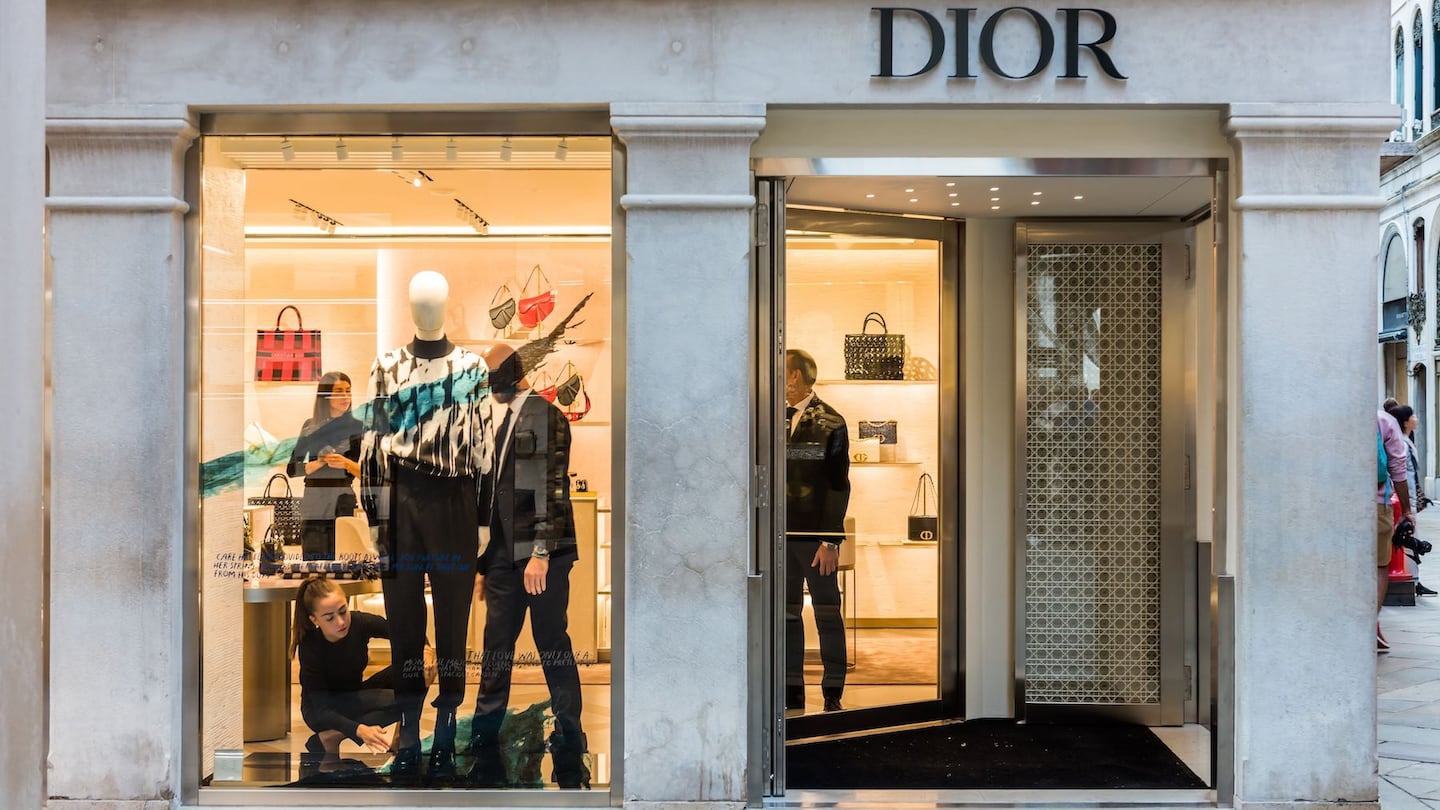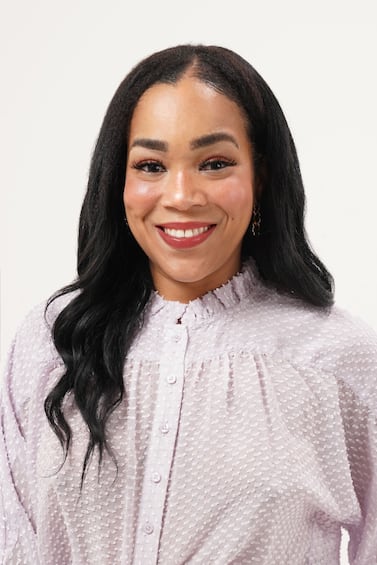
The Business of Fashion
Agenda-setting intelligence, analysis and advice for the global fashion community.

Agenda-setting intelligence, analysis and advice for the global fashion community.

After nearly two decades in luxury retail, Sarai Shivana had grown accustomed to working alongside a certain type of salesperson – someone with a thick book of loyal clients, usually poached from a rival brand.
But when she landed at a big luxury brand in Chicago as an “expert client advisor” last year, Shivana was surprised to meet stylists and advisors from “all walks of life.” (At this particular brand, an expert client advisor is a management-level salesperson with experience in clienteling.)
“You didn’t have to come from working at Dior or have a book to be [considered],” she said, noting the brand typically gave inexperienced salespeople “back of house” roles and allowed them to work their way up. “They really opened up the doors to every different demographic — every level of experience.”
Historically, brands like Louis Vuitton and Gucci — where Shivana first cut her teeth on the sales floor in 2006 — have always sought out sellers who know everything about their best customers, from their favourite colours and silhouettes to their clothing size and birthday. That limited the pool of potential salespeople to other luxury fashion brands, or industries like travel and fine dining where customers also demand the white-glove treatment.
ADVERTISEMENT
But as more luxury brands venture outside of tony streets in London, Paris, Tokyo or New York, those standards are changing.
Labels like Hermés and Chanel are opening stores in neighbourhoods like Brooklyn’s Williamsburg, and in cities that didn’t used to be on the luxury map, such as Columbus, Ohio. Customers in those areas are often younger and less wealthy, and have a different idea of what the luxury shopping experience entails. A salesperson who spent decades catering to Upper East Side clientele at a Fifth Avenue flagship might be the wrong fit. A top performing sales associate from the Gap or Madewell on the other side of the mall, however, might have just what it takes. (While US luxury sales have dropped off this year, most big brands appear committed to their pre-slowdown expansion plans).
“If you think about the reason why these luxury stores have come into these neighbourhoods — it’s because the demographics have changed in these areas,” said Jessica Ramirez, senior research analyst at Jane Hali & Associates. “So they’re just now tapping in — they’re looking to hire from that neighbourhood hoping to find people who are more established there … and who are going to know what the customer wants and who they are.”
The new approach to hiring is putting luxury brands in direct competition with lower-priced brands for workers, even as a labour shortage creates hiring challenges across retail. Luxury brands can no longer expect perks like commission, base pay or brand cachet to earn them a leg up against mass retailers, said Paula Reid, president of the executive search firm Reid & Co.
Luxury brands’ willingness to broaden their talent search matches the shifting demographics of their customers, experts say. To be successful, high-end labels need sales associates who can speak the lingo of young TikTok influencers and YouTube stars as well as their wealthy grandparents.
Courting younger, ethnically diverse, “aspirational” shoppers — whether they’re social media influencers or career professionals with discretionary income — is the biggest reason luxury brands are willing to put aside their usual resumé requirements, said Craig Rowley, senior client partner at business consultancy Korn Ferry.
“This isn’t your big customer — they’re not going to make you a lot of money today,” Rowley said. “They’re your customer of tomorrow. If you build that relationship now and get them to like you, they’ll be the big customer 10 to 20 years from now.”
For a long time, high-end brands had fallen into the pattern of seeking out only the most experienced salespeople. But being a successful luxury sales associate has always come down to soft and transferable skills like eagerness, patience, and strong communication, said Shivana, who now hires sales associates for accessible luxury women’s brand Anine Bing in Manhattan.
ADVERTISEMENT
“I’m willing to hire someone from Michael’s [the arts and crafts store], because that person is patient, goes above and beyond and has great customer service skills,” she said.
While a healthy client book may always have a place in the equation, it’s less important to brands on the hunt for customers who don’t fit the traditional luxury shopper profile, Rowley said. It’s also a reason some brands are more willing to take a chance of less experienced salespeople or those whose resumés are steeped in mass retail. Those sellers haven’t historically earned commission and may be more inclined to forfeit the guaranteed pay-offs of wealthier clients in favour of courting aspirational shoppers.
“The key is having an understanding of what your peer group is buying,” Rowley said. “A veteran salesperson may have the same client who has been with them for 20 years. That’s not good or bad. But, if the client brings their children in, that veteran salesperson may not [resonate].”
Long gone are the days luxury brands — known for their lofty cachet and higher earnings (thanks to commissions) — can assume they have the one-up on mass merchants. The tight labour market and the overhang of the Great Resignation has effectively levelled the playing field by forcing fashion firms across the board to elevate their benefits packages, experts say. For instance, sales associates at Walmart and Target are earning up to $30 an hour — which is the same and, in some cases more, than some high-end client advisors make — and they’ve both added tuition assistance to their perks.
“Money is important but people change jobs for a lot of reasons — finances is just one,” Reid said. “Companies have to figure out how to compete on the quality of experiences they offer their associates.”
One area where luxury brands can position their store roles as a “step up,” said Ramirez is by emphasising the training and product knowledge their associates gain when working with and selling high-priced and intricately designed wares.
“In order for you to sell luxury you have to know the ins and outs of a $5,000 product and be able to educate the customer on that,” she said. “You being educated on that as a sales associate, almost makes luxury more accessible for you — which makes it feel like a better job.”
But for all retailers, the biggest factor in staying competitive is figuring out what matters most to the associates they’re targeting. This may require a strategy-adjustment for luxury brands hiring in new locales.
ADVERTISEMENT
For instance, compared with their older counterparts, younger workers (Gen-Z) tend to care a great deal about their employer’s stance on issues like diversity and sustainability. They also expect companies to lay out a very clear career trajectory for them from the onset, Rowley said.
“Sometimes mass retailers are more attractive in this regard — it can [sometimes] be easier for a young person to see all the ways they can grow and climb as part of a larger retail organisation,” Reid said.
The pace of luxury is often slower and the store itself may be smaller in size — creating an environment where some people thrive and others get bored.
“Luxury requires salespeople to be detail-oriented and thoughtful in every interaction — not everyone wants that,” she said. “Some people need the energy and pace of mass retail.”
From wage hikes to tuition assistance, fashion firms say they’re pulling out all the stops to revamp the store associate role — but their efforts aren’t taking hold.
High-end brands are counting on brick-and-mortar retail to deliver the sort of personalised shopping experiences that can’t be replicated online. But hiring and training employees to pull that off can be a challenge.
Despite major hires like Chanel’s Virginie Viard and Louis Vuitton’s Pharrell Williams, gender parity and racial diversity in top creative roles remain urgent problems.
The industry’s “always on” mentality can make balancing domestic and professional responsibilities a challenge, even when companies offer robust family benefits.

Sheena Butler-Young is Senior Correspondent at The Business of Fashion. She is based in New York and covers workplace, talent and issues surrounding diversity and inclusion.
Discover the most exciting career opportunities now available on BoF Careers — including jobs from Tapestry, Alexander McQueen and Toteme.
A US regulator has banned most uses of the clauses, which started as a way for fashion companies to prevent senior executives from walking off with trade secrets, but have become a standard retention tool.
Check out this week’s new partners and openings on BoF Careers, the global marketplace for fashion talent.
BoF Careers provides essential sector insights for fashion designers this month, to help you decode fashion’s creative and commercial landscape.